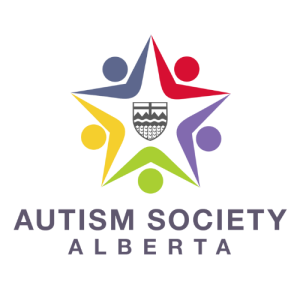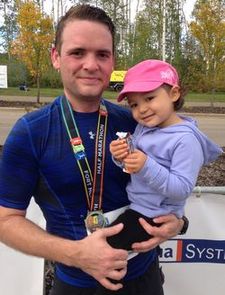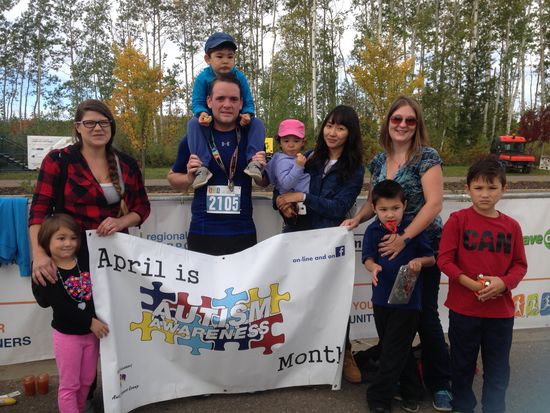Central Alberta Support & Information Group – September Update
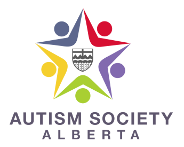
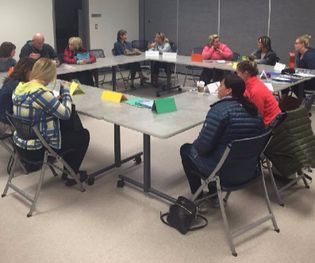
The last thirty minutes of our meeting were dedicated to the discussion of any new business items that people in attendance wanted to discuss. Parents were very excited to hear about the plans made by the Social Solvers Crew about the Playdate Program – many parents were heading home to fill out the Social Skills and Information Profile and await their child’s match! If you'd like to learn more, visit www.socialsolvers.ca.
Upcoming Central Alberta Autism Parent Support Group Meeting
 Please come and join us! We are entering our third year as a support group! We have a new and improved meeting format and an amazing year planned for all our awesome autism parents. We are here to support and learn from one another!
Please come and join us! We are entering our third year as a support group! We have a new and improved meeting format and an amazing year planned for all our awesome autism parents. We are here to support and learn from one another!
– Brene Brown
G.H Dawe Community Center, Red Deer
Tuesday, October 11, 2016
(New day of the week)
6:00-8:00 pm
Free Child minding until 7:30!
Discussion Topic
FSCD Contract: Struggles & Successes
All are welcome!
For more information contact central@autismalberta.ca
Jeff's Marathon Journey – September Update
Hello everybody,
I’m back with another update, this one for the month of September. It’s been a great month since my last update, both for the race training and for our family.
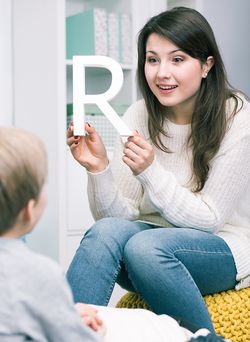
Ben has also been showing great improvement in speech and receptive language over the past 3-4 weeks. He is babbling non-stop – well, not really non-stop, but certainly much more than ever before – and has no trouble forming monosyllabic word approximations routinely when prompted. He would still rather point and grunt to get what he wants, but we know that he is now suddenly capable of more refined communication, so we try to remind ourselves to push him as often as possible to use his words to communicate his needs. That’s sometimes the hardest part – pushing him out of his comfort zone even when he becomes frustrated, and when we already clearly know what he wants or is trying to ask for. That being said, to anybody reading this who has a child on the spectrum who is or has at some point been non-verbal, you can appreciate the joy that comes when you finally start hearing progress. Ben just turned four last month, so we really hope this year at school brings huge gains in that department.
As for the running and training: I wrote the last update immediately after the Edmonton Half Marathon, and as luck would have it, I’m writing this one the day after the Fort McMurray Half Marathon. The Fort Mac Half marked my third and final half marathon of this year, and my last official race before I run in the NYC Marathon on November 6th. Although I have several long runs left in my training program that will see me go over the half marathon distance of 21.1 km (with the longest being 35 km… yikes), they certainly won’t have the same special feeling as an official race.

Arriving at MacDonald Island Park this past Sunday morning, I took a few minutes to reflect on the journey I’ve been on for the past 16 months. In May of 2015, I returned from a booze-soaked weekend in Edmonton visiting my brother Steve and his wife Kristan. Yeunsuk had taken the kids to visit family in Korea, and playing the bachelor for a few weeks, I managed to secure tickets to a lifelong favourite band of both my brother and myself, Counting Crows. The weekend was a load of fun, but what stands out to me the most is probably the picture that was taken of my brother, father, and I with the band during the pre-show VIP experience we had purchased. I looked at the picture the day I returned home to Fort Mac, and giggled at how terrible I looked. It’s not like that was some profound moment that I decided to change my life for the better, but I’d be lying if I said I didn’t feel a little spark inside me to try to clean up my act a bit. I remember thinking specifically that I needed to get healthier for the sake of Yeunsuk and the kids. I thought about Ben and the struggles that may await him later in life, and how much I wanted to help him through those. I also thought of the triumphs that he will no doubt encounter, and how it would suck to not be around or healthy to help him celebrate those.
The next day, I went for a run for the first time in over five years. That was May 15th, 2015, and after that first run, I set a goal to run my first-ever half marathon in September: the Fort McMurray Half Marathon. I realize that goal last year, and crossed the finish line with a time of just over 2 hours and 11 minutes. Immediately after that experience, I started researching full marathon races and training strategy. Before long, I ended up on the New York City Marathon website, and an idea was born.
So there I was this past Sunday, back a year later at the same event that started it all. I ran a great race on Sunday, finishing well under my 2 hour time goal, with a finish time just over 1 hour 56 minutes. I had a fantastic cheering section made up of some awesome parents and kids from the Fort McMurray Autism Support Group (thanks, Kirsti and Corinne!). I felt fresh when I crossed the finish line. Fresh enough to run twice the distance? We’ll see.
Next stop, New York City.
Thanks everybody – I’ll try to get another update in before the big day!
Jeff
How Expanding Interests Helps Those With ASD – The LILA Principle
 Over the years, I have tried to expand my children’s interests to help them increase knowledge, keep their lives interesting, and foster growth. This has also been an educational goal in both school and home therapy programs. My son Marc, now 19, has a great range of interests that has broadened beyond ceiling fans and Thomas the Tank Engine. Julia, 17, has also developed many interests such as cooking, puppetry, animation, The Muppets, cats, and ballet. How did this transformation take place? How did these interests increase from just a couple to many?
Over the years, I have tried to expand my children’s interests to help them increase knowledge, keep their lives interesting, and foster growth. This has also been an educational goal in both school and home therapy programs. My son Marc, now 19, has a great range of interests that has broadened beyond ceiling fans and Thomas the Tank Engine. Julia, 17, has also developed many interests such as cooking, puppetry, animation, The Muppets, cats, and ballet. How did this transformation take place? How did these interests increase from just a couple to many?
I have thought about this and can say it is because of two things – something I call the LILA Principle (Leave It Lying Around) and exposure to a wide range of activities to build connections. Here is how the LILA Principle worked with regards to Marc’s reading.
My husband Ron and I have been avid readers for many years, and we buy books every month. We have always allowed both of our children access to any book on our shelves. Occasionally, I buy audio books for Ron to listen to while driving. A few years ago, I bought him Bob Barker’s biography Priceless Memories; Ron put it on a shelf when he was done with it. Three years ago, Marc found that audio book and began to listen it with great interest, as he knew Bob Barker’s voice from the Price is Right game show. I decided to get him the book version as well to see what he would do. He started the CD over again and followed along with the book, running his finger along the text. He never made a mistake or got behind with turning pages, so I knew he was able to read the text. After completing the book with the CD, Marc started reading the book aloud without the CD accompaniment.

As a result of this reading, Marc now wants to visit all kinds of museums because he likes to read the plaques aloud. He now also knows many museums will show a documentary video on topics they highlight. This has increased his interest in watching documentaries at home. When Marc reads those plaques, he gets very excited when a name comes up that he knows, such as Queen Elizabeth.
One Day
As an adult with autism, I sometimes think back to adolescence, before my family and I knew that autism was a part of our lives.
One day, within the space of a few hours, my mother told me first that I was lazy, and then that I was very helpful. I was quite angry when she said I was lazy – I had been behaving perfectly reasonably. And I was infuriated when she said I was helpful – It was another example of her hypocrisy, and that was intolerable.

Later that evening, she asked if I would make supper twice the following week. It was my job to make it once a week, on Thursdays, but she was going to be gone on Tuesday too, so I agreed. I didn’t like making supper, but it wasn’t anything like getting the potatoes. I would wake up in the morning knowing I had to make supper. I would go to school knowing I had to make supper. I would come home planning to make supper. And then, I would make supper. I would get my own potatoes. I would do everything on my own, actually. If anyone came into the kitchen asking if they could help, I would make them go away. Where did people get off, disrupting me when I was busy like that? Sometimes, they wouldn’t want to leave, and I would yell and rage. How on earth could I be expected to finish making supper when people were bouncing around and in the way, when I couldn’t think and couldn’t plan? When there were people where I wanted to be, people who kept trying to talk to me? But as long as no one was there and I knew and agreed to it, I could make supper. That was reasonable. Expecting me to get a potato, on the other hand, was simply absurd.
We Want to Hear From You!
Ready, Willing & Able

 As a national strategy to develop inclusive and effective labour markets, RWA:
As a national strategy to develop inclusive and effective labour markets, RWA:-
connects and supports employers, persons with ASD or intellectual disabilities, and local and provincial organizations and agencies
-
promotes an understanding and awareness among employers and the general public about the business value of hiring inclusively
-
complements and enhances the capacity of community employment service delivery organizations by connecting them to new employer demand.
Serving the Calgary and Edmonton areas, RWA supports individuals with intellectual disabilities or ASD interested in employment, post-secondary education or entrepreneurship through its partnering agencies. In serving the ASD community, we currently partner with Gateway Association in Edmonton, and the Pursuits and Recruits and Spectrum Advantage programs in Calgary. We know that finding meaningful employment is difficult for our ASD population, and that the amount of employment support available can often mean the difference between success and failure. RWA supports agencies through the provision of job coaches and student coaches, ensuring the agency has the capacity to provide individualized support. Every recipient of RWA support is required to be connected to one of our partner agencies.
RWA has been successful in attracting a team of experienced professionals to offer business coaching to individuals seeking entrepreneurial opportunities, as well as families seeking coaching support to build a family business that will provide meaningful employment for their family member with ASD.
 In Edmonton: Gateway Association for Community Living
In Edmonton: Gateway Association for Community Living-
Email: info@gatewayassociation.ca
-
Phone: 780-454-0701, or toll free 1-888-754-0701
-
Email: mpiers@theabilityhub.org
-
Phone: 403-210-5000
-
Email: sarah@autismcalgary.com
-
Phone: 403-210-5000
A Practice in Empathy
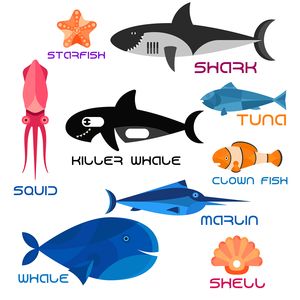
Visual fiction, that is to say television shows and movies for the most part, has its own particular hurdles. To me, the actions of the characters do not seem to follow a clear overarching logic, but rather the vagaries of some arcane random number generator – as if they were not decided by a rational, consistent mind, but merely a roll of the grand cosmic dice. I find romantic subplots in particular puzzling, as they seem to assume that a few awkward, hackneyed sentences of dialogue between two conventionally attractive leads is reason enough to declare the connection between the two “true love” without any further explanation. It is difficult, if not impossible, to identify with and care about the fate of characters who seem to act without cause or reason.
But again, I do enjoy fiction – I like it a great deal. Most of my favourite examples of fiction, however, are found in literature or in interactive fiction (video games). The interactive narrative is perhaps as close as humankind has come to letting one person live the life of another, to experience a very different existence, to act and react to a foreign set of circumstances.
The written narrative – be it novel or be it short story – is as close as we have come to letting one person inhabit the mind of another, to see their thoughts. The player and the reader are ghostly voyeurs, peering into the window of another existence, and in this small way, they know what it is to live a different life, to be a different person. People’s actions are not quite as inexplicable when one can simply read their thoughts, I find.

I was bullied as a child. Not badly, but it was nonetheless a painful experience – one made particularly so by the fact that I never understood why. One of my clearest memories from that age is my mother calmly, quietly explaining why my peers treated me the way they did. Maybe they were lonely. Maybe they were angry. Maybe they were frustrated and vulnerable and scared. Maybe they were hurting, just like I was.
If I have learned anything from stories, it is that anger is weak in the face of understanding. That hatred is impossible in the light of compassion. It is much easier to condemn others when their pain seems incomprehensible and arbitrary – when we have no sense of the mind behind the action. Certainly, my bullies were wrong, but they were also people, given to their own folly and failures. Perhaps if someone had explained me to them, as someone once explained them to me, they would have been gentler in their conduct.
I have spent my life reading the stories and experiencing the minds of neurotypicals, and this has become a vital tool in my understanding of the world outside myself. There is value too, when neurotypicals read the stories and experience the minds of autistics. After all, communication requires empathy, but empathy, like all skills, requires practice.
Autism Spectrum Disorder – Pathways to Employment
On behalf of the Glenrose Rehabilitation Hospital, Alberta Health Services please join us for the 12th annual Spotlight on Research Breakfast as we host:
Dr. Carol Schall
Co-Director, Virginia Commonwealth University, Autism Center for Excellence
Director, Virginia Autism Resource Centre
Dr. Schall will be exploring Pathways to Employment for Youth and Young Adults with Autism Spectrum Disorder (ASD) by highlighting the current research regarding employment outcomes for youth and young adults with ASD. Dr. Schall has over 30 years of experience in supporting adolescents and adults with ASD as a teacher, administrator, researcher and consultant.

The Glenrose Rehabilitation Hospital is dedicated to supporting the talented interdisciplinary teams that support our patients as they strive for independence. We believe this event will educate and inspire innovative thinking that will further help our patients with ASD and their families achieve their goals.
This year’s topic offers a unique opportunity to hear from an internationally renowned speaker offering tangible examples and solutions. The Glenrose Rehabilitation Hospital is pleased to be hosting Dr. Schall while simultaneously showcasing local research realized through a thriving Glenrose and University of Alberta collaboration.
Help us galvanize our community towards creating solutions for the health and functional challenges facing us all.
Click here for registration information - Early bird pricing in effect!
The Sponge and the Initiators

Several days ago, with my trip nearing its end, I finally crossed the border into Mexico. After spending a night in the oddly fascinating border town of Tapachula, I am now in the picturesque colonial city of Oaxaca, and very happy to be here. Mexico is the only country that isn't new to me on this trip, and as such, returning to its familiar comforts is like reuniting with an old friend.
But it's not just the familiarity of Mexico that makes it such a pleasure to visit. After visiting a diverse set of countries in Central America, some cultures came across as a bit friendlier than others. For example, there was one country where I found it hard to get anything besides stone-faced reactions from many of the locals. By comparison, the easygoing charm and quick sense of humour that seem so prevalant in Mexican culture never fail to put a big smile on my face.
My first instinct would have been to simply say that Mexico is the friendlier country, but I realized that's unfair. After all, people who are more outgoing than me would probably have a far longer list of friendly countries than I do. I can be wonderfully sociable and outgoing, but my attempts at sociability tend to end up awkward and bungled with people who don't immediately come across as friendly – in other words, people who make the same impression on me that I probably do on them! Heck, I can barely smile at strangers unless they smile at me first. But if they do, I feel immediately at ease and can respond with a spontaneous, natural smile.

I think this realization has helped me understand why I often feel so uncomfortable interacting with strangers back home in Canada, in spite of the number of wonderful friends and loving family members I have there. First impressions count, and initiation is crucial for forming new relationships, whether it's forcing a smile or trying to go a few sentences without saying something completely ridiculous – but with old friends and family, you can just be yourself, and not worry about initiating.
Near the start of my trip, I made the mistake of ending up in a beach town in Nicaragua that is known mostly as a place for foreigners much younger than me to drink and party. (Unfortunately for me – I just wanted to go to the beach!) One night I ended up at a nightclub surrounded by dancing, drunken, hedonistic young people. I stood stock-still, observing all the goings-on, very much aware of how out of place I was, and not entirely welcome – especially since I didn't have a drop of alcohol in my body! In the past the feeling of being out of place would have been an acutely painful one, but this time I just found it interesting, like being an alien observing the earthlings from the safety of his flying saucer.

Of course, I'd never claim that anyone owes me a warm greeting, especially if a stone-faced "Buenos días" is all I have to offer them at the outset. If that's all I can give sometimes, then that's about all I deserve to get back, though I'm always happy when I can get an undeserved smile! All I can really say is that I now understand better why some places feel more much comfortable than others. Now it's up to me to decide whether I'm willing to make the effort to practice smiling on cue, along with all the other important skills of social initation, in the hopes of being comfortable in a wider range of places. It would be nice to feel at home everywhere, but in the meantime, I'm happy to find those places that already do feel like home.
